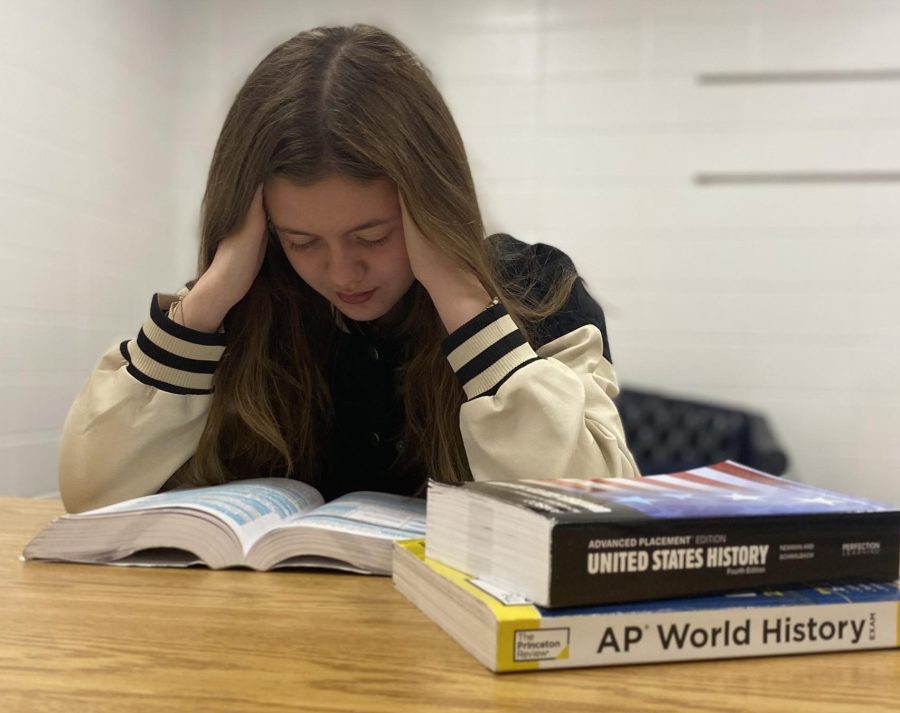Head 2 Head

There is talk among Fayette County schools of eliminating the AP course limit cap. Doing so would have a multitude of positive effects on the students, teachers, and the school as a whole.
When limiting the number of Advanced Placement courses a student can take during each year, you are limiting the number of opportunities for them to succeed. Without the barrier of an arbitrary rule, students have more rigor in their classes, leading them to an overall increased standard of education.
Simply put, doing away with a specific limit of classes per year could encourage students to take more classes and get ahead academically. This could lead to higher early graduation rate and a less stressful senior year. If underclassmen decide which APs they can handle early on, it could pay off in the future.
The flexibility of not having a course limit could aid students in spreading their AP classes out more evenly throughout their time in high school. For example, if freshmen were only allowed to take one AP class and then increase by one every year it will lead to a stressful and academically overcrowded senior year.
With the abolishment of the AP limit, a capable freshman could take two or even three APs and maintain that number of advanced classes for each year following. It would require students to self-evaluate and confront their abilities as well as use forward thinking tactics to plan for their future school years.
Because AP classes give a half-point bump to the overall GPA, then the more AP classes taken, the higher the average GPA is. If a student were to take too many or too difficult AP courses, they would be setting themselves up for a lower GPA. This would require students to then evaluate how they did and use that knowledge to help them plan their AP classes for the next year.
AP classes count as a college credit on a high school student transcript, meaning theoretically, a high school student could go straight into college as a second semester sophomore, finishing college much earlier than the average attendee.
The faster young people can get out of their formal education, the faster they can move on to bigger and better things in the world, spanning from better job opportunities to important leadership positions.
The pros clearly outweigh the cons of doing away with the Advanced Placement course limit and it should be gotten rid of. Students at Starr’s Mill High School should be granted a variety of new academic opportunities and freedoms.
Currently, Fayette County has a cap for the number of Advanced Placement classes students can take, but the county is considering removing the cap next year. While it may seem like a way to broaden students’ horizons, removing the cap is actually restricting them as well as adding significant stress to those who want a high class ranking.
While AP classes are beneficial to students, taking too many of them can cause unneeded stress. Advanced Placement courses are more difficult than normal classes due to their college material. Not only do those taking the classes have to perform well in the class for their transcript, they also have to do well on the final AP exam in order to have the credit transfer to colleges.
Having an AP cap would also allow students to take other classes besides Advanced Placement courses. Without the cap, those who desire a high class ranking are encouraged to take AP classes rather than other interest-based classes or fine arts classes. These classes are just as important as academic courses because they build on creativity and out of the box thinking.
As students take more Advanced Placement courses, other classes are threatened. The electives Fayette County schools offer as well as college readiness courses could be threatened due to the need for more AP teachers and class slots. This leaves students who choose not to take AP classes with little variety in their available courses.
While AP classes do grant high academic achievers with rigorous courses, there should still be a cap on the amount students can take. The cap alleviates stress and allows for students to venture out of their academic bubble. It allows for those who want a high class rank to take classes based on their specific interests instead of loading themselves with AP courses to keep up with everyone else.
Overall, the AP cap is beneficial for both high academic achievers as well as students who choose not to take AP classes. Removing the limit could be detrimental to the mental health of the students in the county as well as programs interest-based and career-based classes currently offered.


